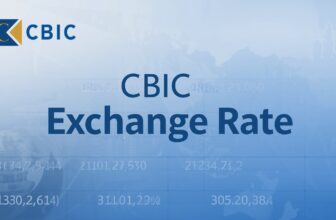
The first time I came across the term “forex,” I thought it was just a fancier version of stock trading. My perception changed dramatically after a few months of observing both markets closely. While there are overlapping skills and tools, the mechanics, psychology, and rhythm of each market are remarkably different.
This article unpacks the nuanced differences between forex trading vs stock trading, offering expert insights and real-world reflections for anyone weighing the pros and cons.
| Feature | Forex Trading | Stock Trading |
|---|---|---|
| Market Hours | 24 hours (Monday to Friday) | Typically 9:30 AM to 4:00 PM (EST) |
| Global Access | Decentralized, global | Centralized, tied to national exchanges |
| Flexibility for Traders | High – fits different time zones | Limited to exchange hours |
| Feature | Forex Trading | Stock Trading |
|---|---|---|
| What You Trade | Currency pairs (EUR/USD, USD/JPY, etc.) | Company shares |
| Market Size | $7.5 trillion daily volume | Under $300 billion daily (NYSE) |
| Ownership | No ownership, betting on relative strength | Actual ownership in companies |
| Liquidity | Extremely high, tight spreads | Varies by stock, can be illiquid |
| Feature | Forex Trading | Stock Trading |
|---|---|---|
| Price Movement | Smoother price action with occasional sharp moves | Can react explosively to single news events |
| Event Impact | Major moves during economic events | Earnings reports, company news cause volatility |
| Predictability | Often moves within ranges | Can be unpredictable with gaps |
| Feature | Forex Trading | Stock Trading |
|---|---|---|
| Leverage (Retail) | Up to 1:50 or 1:100 (varies by region) | Generally 1:2 to 1:5 |
| Capital Required | Lower (due to leverage) | Higher upfront cost |
| Risk Profile | Higher risk due to leverage | More conservative approach |
| Feature | Forex Trading | Stock Trading |
|---|---|---|
| Analysis Type | Macroeconomic | Microeconomic |
| Key Factors | Central bank policies, interest rates, GDP, inflation | Company earnings, product launches, management changes |
| Trading Style | Data-based, economic calendar driven | Story-based, company performance driven |
1. Market Hours and Accessibility
One of the most immediate contrasts between stock trading vs forex lies in market accessibility. Forex is a decentralized global market, operating 24 hours a day, five days a week. This around-the-clock access means traders in India, the Middle East, or Europe can find a session that fits their schedule, whether it’s the London open or the New York close.
By contrast, stock markets are geographically and temporally restricted. The Indian stock market, for instance, opens from 9:15 AM to 3:30 PM IST—a rigid window that may not suit those with a full-time job.
According to Brian Whitaker, a senior financial markets analyst at Capital Insight Group:
“The forex market’s flexibility is a major draw. It caters to traders with different lifestyle needs, allowing for trading during early mornings or late nights. Stock traders don’t get that luxury.”
This fluidity makes forex attractive for those seeking dynamic trading opportunities across different global economies. However, with greater access comes the need for discipline. The 24/5 nature can tempt overtrading—a common rookie mistake.
2. Instruments Traded and Market Size
Forex trading revolves around currency pairs. Unlike the stock market where one is betting on a company’s future, in forex, one is essentially betting on the relative strength between two economies. Pairs like EUR/USD, USD/JPY, or INR/JPY capture this dual dynamic.
The forex trading vs stock market comparison becomes clearer when looking at scale. As of 2023, the global forex market sees $7.5 trillion in daily volume, making it the most liquid financial market on earth. The New York Stock Exchange, by contrast, sees under $300 billion daily.
This liquidity has a major impact on execution and slippage. Spreads in major forex pairs are razor-thin—sometimes as low as 0.1 pips—allowing traders to enter and exit positions with minimal friction.
Stock markets can be less forgiving, especially with smaller-cap equities. Illiquidity can lead to wide bid-ask spreads and price gaps. As Dr. Sneha Rajan, financial educator and equity researcher, notes:
“In equities, especially in emerging markets, liquidity is uneven. One can easily get trapped in a position, waiting for a buyer. That risk barely exists in the major forex pairs.”
Still, stocks offer something forex does not—ownership. When someone buys equity in a firm, they own a portion of that business. Forex lacks this underlying value proposition, which might matter to long-term investors.
3. Volatility and Risk Profile
Volatility is often painted as the villain of trading, but it's also what creates opportunity. The nature of volatility in stock trading vs forex differs significantly.
Forex, due to its massive liquidity, tends to exhibit smoother price action—until economic events hit. Interest rate announcements, CPI releases, or geopolitical events can cause sharp whipsaws. But during most sessions, especially in major pairs, price tends to oscillate within tight, manageable ranges.
Stocks, however, can react explosively to a single piece of news. One tweet from a CEO, one earnings miss, and the price can nosedive. This asymmetry makes stock trading both rewarding and dangerous.
Consider this observation from Richard Cheng, portfolio manager at EastBridge Capital:
“Forex is like a deep river. It flows steadily, but when it rains—like during a Fed meeting—the current becomes wild. Stocks are more like shallow streams. They can be calm, but often turbulent without warning.”
For new traders, this difference in volatility style can influence their learning curve. Forex may be preferable for technical traders who rely on chart patterns, while stocks might suit those with a flair for fundamental analysis.
4. Leverage and Margin Requirements
| Category | Forex | Stocks |
|---|---|---|
| Leverage (Retail) | Up to 1:50 or 1:100 (varies) | Generally 1:2 to 1:5 |
| Capital Required | Lower (due to leverage) | Higher upfront cost |
One of the more controversial aspects in the forex trading vs stock trading comparison is leverage. Forex brokers offer much higher leverage, especially outside of regulatory-heavy jurisdictions. A retail trader can control a $100,000 position with just $1,000 in margin on a 1:100 account.
This leverage amplifies both profit and loss potential. It makes forex accessible—but also dangerous if misused.
Stock markets are far more conservative. In India, for example, intraday trading may offer up to 5x leverage, but delivery trades require full margin. This forces traders to approach equity investing with a longer-term, capital-heavy mindset.
As Vivek Verma, head of retail brokerage at DeltaBroking India, points out:
“Leverage is a double-edged sword. In forex, it can make or break a retail trader in a matter of hours. Stock trading, with its limited leverage, gives more room for reflection and decision-making.”
This difference also impacts capital requirements. Forex allows traders to start with as little as $100. Stock trading, especially in developed markets like the U.S., demands more capital for similar exposure.
5. Analysis Style: Macro vs Micro Thinking
The analytical framework in forex trading vs stock market trading is perhaps the most intellectually distinct.
Stock trading is inherently microeconomic. A trader tracks company earnings, product launches, sector growth, and even internal management changes. One may choose to invest in TCS based on robust IT growth, or in Tesla based on innovation expectations.
Forex, by contrast, is macro. It’s about central bank moves, interest rate differentials, GDP releases, inflation targets, and political developments. Traders forecast how currencies will react to big-picture shifts. A rate hike by the Bank of England could spike the GBP; inflation woes in the Eurozone may weaken the EUR.
It’s not uncommon for forex traders to keep an economic calendar glued to their screen, planning trades around key data drops.
“Stock trading is story-based,” says Niklas Hoffmann, a macro strategist at Oakridge Financial.
“Forex trading is data-based. Traders interpret rate expectations and bond yields the way stock traders read earnings call transcripts.”
Because of this difference, traders often find themselves drawn to one world more than the other. Those with a love for macroeconomics and geopolitics lean toward forex. Those with a passion for business analysis often stick to equities.
Final Thoughts: Is Forex Trading or Stock Trading Better?
The question isn’t “is forex trading same as stock trading?”—the answer is clearly no. They’re distinct ecosystems. The better question is: Which aligns with my personality, strategy, and financial goals?
Forex is fast, liquid, and globally oriented. It rewards precision and macroeconomic awareness.
Stock trading is rooted in corporate stories and long-term growth potential. It suits those who prefer a more structured, regulated environment.
In my view, both are worthy battlegrounds. But like any skill, mastery begins with understanding. And in choosing between forex trading vs stock trading, the real edge lies not in the market itself—but in how well the trader understands its game.
Frequently Asked Questions (FAQs)
1. Is forex trading or stock trading better for beginners?
It depends on the trader's temperament and goals. Stock trading tends to have a gentler learning curve due to lower leverage and more structured regulations. Forex, while highly liquid and accessible, requires a deep understanding of macroeconomics and risk management due to its volatile nature and high leverage. Beginners may find stock trading more forgiving, but disciplined learners can excel in forex as well.
2. Can I trade both forex and stocks simultaneously?
Yes, many traders diversify by participating in both markets. Doing so offers exposure to different asset classes and strategies. For instance, some may use stock trading for long-term investments while engaging in short-term speculative trades in the forex market. The key is to manage risk and not spread attention too thin across the two markets.
3. Is forex trading legal in India?
Retail forex trading in India is permitted only through SEBI-regulated exchanges like the NSE and BSE, and limited to specific currency pairs such as USD/INR, EUR/INR, GBP/INR, and JPY/INR. Trading through international brokers or in unauthorized pairs is prohibited under FEMA regulations and can result in legal penalties.
4. Which market is more volatile: forex or stocks?
Both markets exhibit volatility, but in different ways. Forex markets often show steady movements influenced by macroeconomic factors, whereas stock prices can be more reactive to company-specific news. While forex is more liquid, stocks can experience sharper percentage swings—especially in small or mid-cap equities.
5. What are the tax implications of forex trading vs stock trading?
Tax treatment varies by jurisdiction. In India, profits from stock trading are taxed under capital gains or business income, depending on holding period and intent. Forex trading profits, especially from currency derivatives, are taxed as business income. It's essential to consult a tax advisor or financial professional to understand the specific obligations and deductions available for each trading type.

















